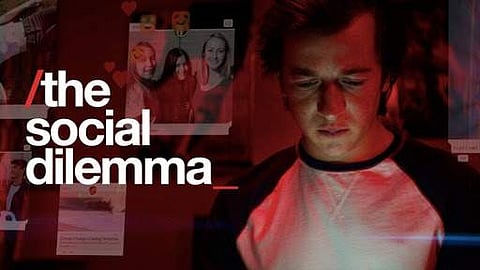

While most of us loved the new Netflix documentary 'The Social Dilemma' that shows how social media platforms treat users as a product and spreads misinformation, Facebook has come down heavily on the leading content streaming platform, saying it has buried the substance in sensationalism. In a rather uncharacteristic move, the social network slammed the documentary, stressing that it gives a distorted view of how social media platforms work to create a convenient scapegoat for what are difficult and complex societal problems.
The seven-point rebuttal came as 'The Social Dilemma' created waves globally for exploring the dangerous human impact of social networking, with tech experts sounding the alarm on their own creations. Denying that it treats users as a product, Facebook said it is an ads-supported platform, which means that selling ads allows it to offer everyone else the ability to connect for free.
"This model allows small businesses and entrepreneurs to grow and compete with bigger brands by more easily finding new customers. But even when businesses purchase ads on Facebook, they don't know who you are," the company said in a statement. "We don't sell your information to anyone. You can always see the 'interests' assigned to you in your ad preferences, and if you want, remove them". The documentary from Jeff Orlowski tried to make a point that addiction and privacy breaches are the features, not bugs, of the social media platforms.
Facebook said that it uses algorithms to improve the experience for people using its apps a" just like any dating app, Amazon, Uber, and countless other consumer-facing apps that people interact with every day. "That also includes Netflix, which uses an algorithm to determine who it thinks should watch aThe Social Dilemma' film, and then recommends it to them. This happens with every piece of content that appears on the service," the social network argued. For example, said Facebook, it uses algorithms to show content that's more relevant to what people are interested in, whether it's posts from friends or ads.
"Portraying algorithms as 'mad' may make good fodder for conspiracy documentaries, but the reality is a lot less entertaining,a Facebook noted. The documentary was released on Netflix last month with a message that social media platforms are irresponsibly using their power, dividing society with addictive misinformation. According to Facebook, the film's creators do not include insights from those currently working at the companies or any experts that take a different view to the narrative put forward by the film.
"They also don't acknowledge -- critically or otherwise -- the efforts already taken by companies to address many of the issues they raise. Instead, they rely on commentary from those who haven't been on the inside for many years," Facebook emphasized. Despite what the film suggests, Facebook said it has policies that prohibit businesses from sending it sensitive data about people, including users' health information or social security numbers. Netflix was yet to comment on this.
The documentary also touches upon the failure on part of social media firms on maintaining election integrity, to which Facebook said that it did acknowledge that it made mistakes in the 2016 US presidential elections. "Yet the film leaves out what we have done since 2016 to build strong defences to stop people from using Facebook to interfere in elections. We've improved our security and now have some of the most sophisticated teams and systems in the world to prevent attacks," the social network argued. The idea that we allow misinformation to fester on our platform, or that we somehow benefit from this content, is wrong, said Facebook. "We don't want hate speech on our platform and work to remove it, despite what the film says. "While even one post is too many, we've made major improvements on this. We know our systems aren't perfect and there are things that we miss. But we are not idly standing by and allowing misinformation or hate speech to spread on Facebook."
